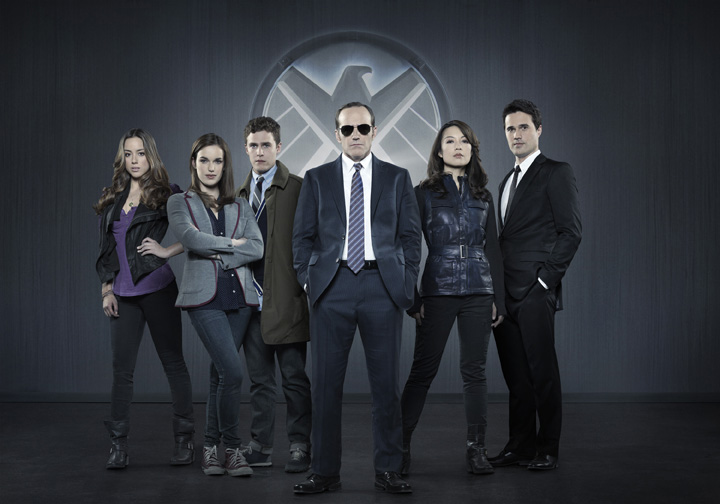The Almost Theology of Agents of S.H.I.E.L.D.
Brad Fruhauff
 “The only [religious story] that stuck with me was something Sister McKenna said, . . . ‘God is love.’ It’s simple, and a little sappy, but, that’s the version I like. God is love; the thing that holds us together. And if that’s true I don’t think he’d punish you for making a mistake. I think he’d forgive a mistake.”
“The only [religious story] that stuck with me was something Sister McKenna said, . . . ‘God is love.’ It’s simple, and a little sappy, but, that’s the version I like. God is love; the thing that holds us together. And if that’s true I don’t think he’d punish you for making a mistake. I think he’d forgive a mistake.”
—Skye (Agents of S.H.I.E.L.D. S1.E9)
Because I love a lot about the new Netflix series Jessica Jones, I was all the more disappointed when it resorted to cheap shots the first time Jessica encountered a religious person—a Catholic woman who seems to thank God that her son is home, now, albeit strapped to a machine because a villain stole his kidneys. Jessica doesn’t say anything specific to the woman, but it’s clear the show views her faith with derision.
And maybe it should, since she has some confused theology. But theology wasn’t the point; faith was simply a narrative device, and it’s disappointing to see that in an age of “tolerance.”
It reminded me of the episode of Agents of S.H.I.E.L.D. I cite above. It’s a much more mainstream show, and yet it probably does better at taking persons of faith seriously, if not faith itself. Skye, a S.H.I.E.L.D. agent, makes this speech to Hannah, a Christian woman who believes God has abandoned her to be haunted by demons because of an error at work that killed four people. Hannah, like most TV Christians, has some bad theology, and Skye’s response almost looks like good theology. One wants to say, “Yes, God is love. Of course he’d forgive her.”
Of course, she wraps that truth in a fallacious elision of God and love. Surely, as the ground of our being and source of our love, God does in some sense hold us together, but Skye hardly means all that. The important part of her speech, rather, is where she says, “that’s the version I like.”
Our sin natures will not always like what’s true, so this is really more bad theology. Still, to writer Jed Whedon’s credit, he takes spiritual concepts like guilt and atonement seriously. In the climax, we learn the “demons” are really an admirer named Tobias who has gotten stuck between dimensions. Tobias admits he caused the accident and has been trying to atone by protecting Hannah, and he begs her forgiveness.
Here’s where it gets weird again, but still in interesting ways.
Agent May has her own guilt, a story that haunts her even as other agents mythologize it. She intervenes to help Hannah and Tobias, but when Hannah says, “Only God can forgive you,” May chimes in,
“And he won't. You can’t undo what’s been done. That will be with you forever. But trying to hold onto this life, clinging to the person you thought you could be: that’s hell.”
We know that's the last word because it concludes the action of the climax and, we learn, it is what Coulson (read: dad) told her after her own traumatic choice. It needs to be said that this gets the gospel all wrong in its attempt at tough love. May’s right that Tobias can’t save himself, but stoic resignation is not God’s way.
However, if a popular show is going to have a Christian character, and if it’s too much to ask that that character’s faith is not simplistic, superstitious, or downright scary, then I at least appreciate the way S.H.I.E.L.D. treats the religious characters with dignity. They deserve closure and reconciliation, however screwy their notions. And that has moral power and aesthetic integrity.